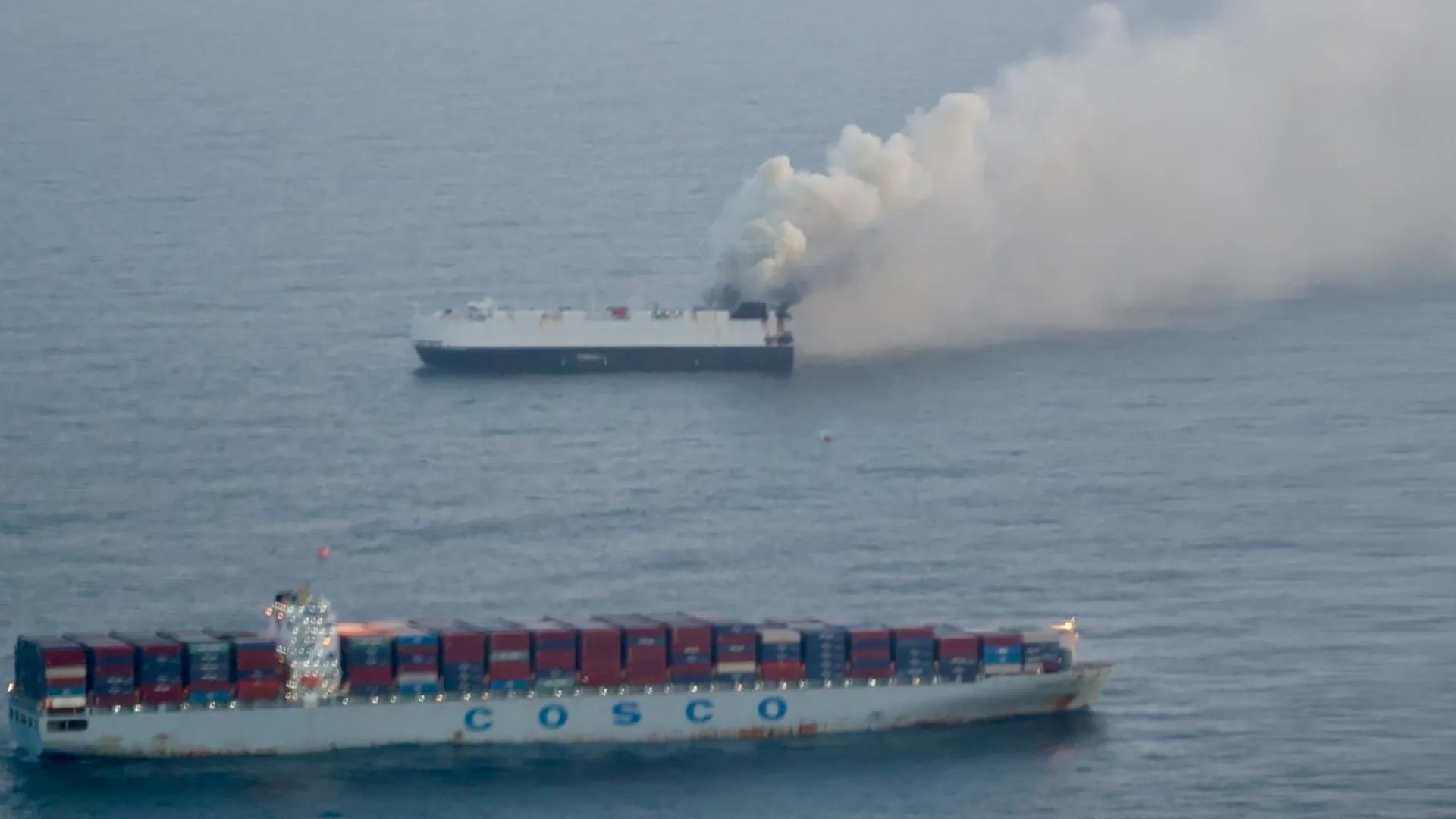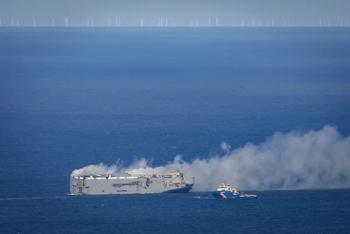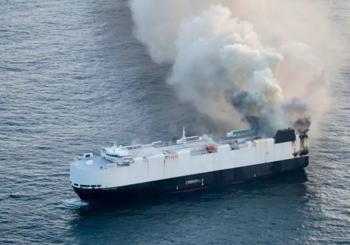Fire Breaks Out on Cargo Ship Carrying Electric Vehicles Near Alaska Coast
Fire Erupts on Cargo Ship Carrying Hundreds of Electric Vehicles Off Alaska’s Coast
A fierce blaze broke out on a cargo ship transporting thousands of vehicles, including a significant number of electric cars with lithium-ion batteries, off the coast of Alaska. The fire, which began more than a day ago, continues to burn, raising concerns about the dangers posed by battery fires at sea and the challenges faced in containing such incidents.
Early Signs of Fire and Emergency Response
The cargo ship, named Morning Midas, started experiencing smoke from one of its decks carrying electric vehicles on a Tuesday afternoon while sailing roughly 1,200 miles from Anchorage, Alaska. The ship’s crew quickly realized the severity of the situation and issued a distress signal approximately 15 minutes after noticing the smoke. Despite their efforts, the crew could not control the fire onboard.
All 22 crew members safely evacuated the 600-foot vessel in lifeboats and were subsequently rescued by a nearby commercial ship, according to official maritime safety authorities. Fortunately, there were no reported injuries.
Firefighters Watch From a Distance Due to Explosive Risks
Because the electric vehicles onboard contained highly flammable lithium-ion batteries, which are prone to overheating and potentially exploding, authorities made the difficult decision to monitor the fire from a safe distance rather than attempt direct firefighting efforts. Lithium-ion battery fires are notoriously challenging to extinguish and can release toxic gases, further complicating emergency responses, especially at sea.
Currently, no firefighting vessels are near the Morning Midas to tackle the blaze. However, a salvage team is scheduled to arrive early next week to begin containment and recovery efforts.
Investigation into Fire’s Origin Underway
An investigation into the cause of the fire is underway, though it is still premature to conclude whether the electric vehicles were directly responsible. Battery fires at sea are particularly dangerous because the saltwater environment can corrode battery casings, potentially intensifying flames and causing larger-scale fires.
The Scope of the Cargo and Shipping Route
The Morning Midas was carrying approximately 3,000 vehicles in total, including around 800 electric vehicles. The ship departed from Yantai, China, at the end of May and made stops at Shanghai and Nansha, two key export hubs for Chinese electric vehicles. Its intended destination was Lázaro Cárdenas port in Mexico, with an expected arrival date in mid-June.
China’s dominance in supplying electric vehicles to Latin America is significant, with over 60 percent of electric vehicles sold in Mexico in recent years being imported from Chinese manufacturers. This cargo represented an important shipment within that growing market.
Increasing Concerns Over Lithium-Ion Battery Safety
The incident highlights growing global concerns about the safety of lithium-ion batteries, especially during transport. Fires fueled by these batteries can spread rapidly, release harmful gases, and pose a severe threat to maritime safety. Past incidents, such as the 2022 fire and sinking of the Felicity Ace — a larger car carrier that burned for nearly two weeks — underscore the risks involved.
These batteries also pose challenges in air travel, with many airlines tightening restrictions on their transport and use following recent fires and accidents. The combination of high energy density and volatile chemistry makes lithium-ion batteries both efficient and potentially hazardous.
As the Morning Midas fire continues to burn off the Alaskan coast, maritime authorities remain vigilant. The safety of the crew, potential environmental impacts, and the investigation’s findings are all key priorities in the days ahead. The unfolding situation serves as a stark reminder of the complexities involved in safely transporting electric vehicles and their batteries across vast oceans.







COMMENTS (0)
Sign in to join the conversation
LOGIN TO COMMENT